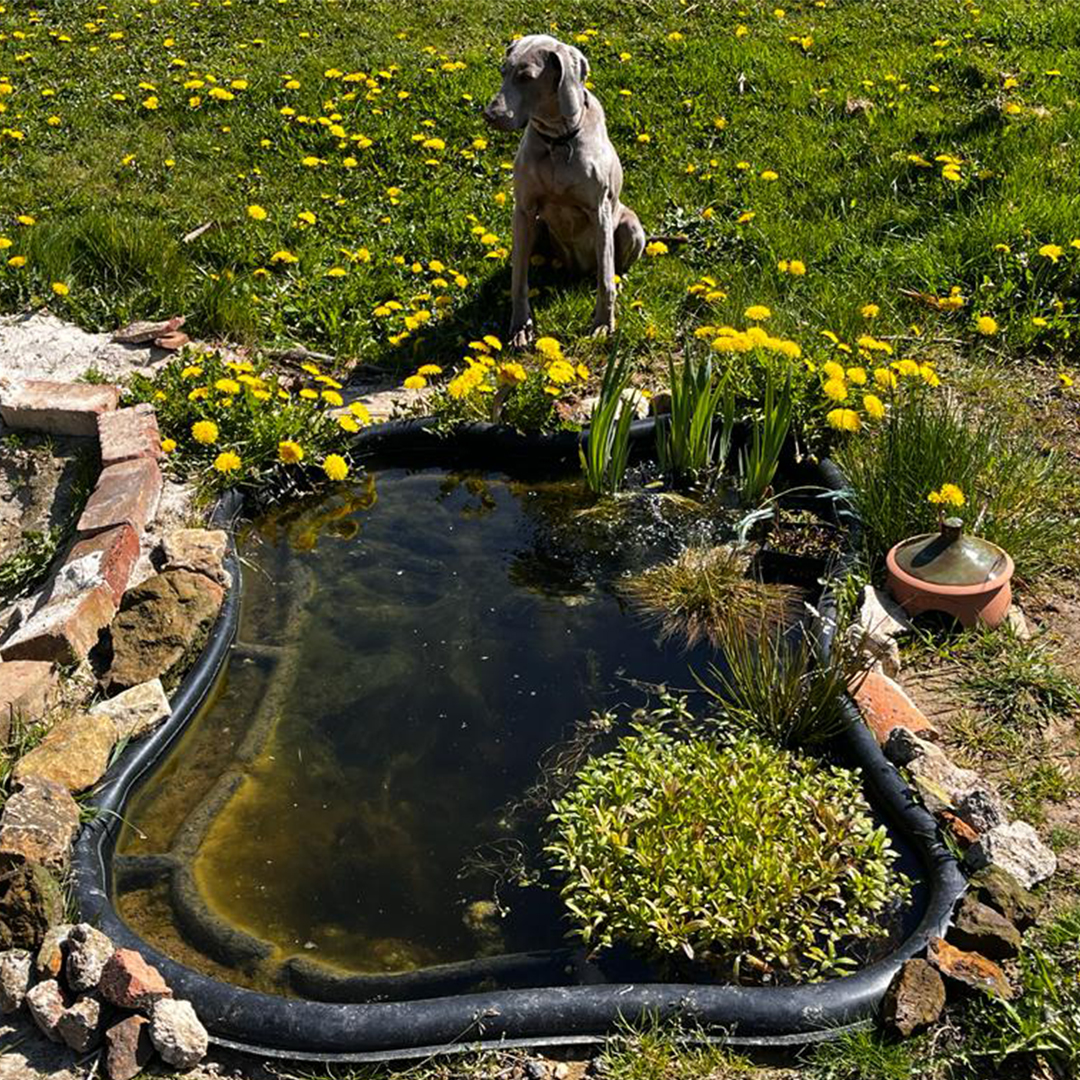Chemical free tips to rebalance the eco-systems in your garden.
#2: Ponds: ecological hotspots for biodiversity.
Installing a small pond in your garden can help control garden pests like aphids, provide a valuable home for amphibians, act as a carbon sink and become an ecological hotspot for biodiversity. Follow my son’s lead and add enormous benefits to your garden with just a humble pool of water.
My youngest son, George, who is 7 years-old, loves animals and nature and, for a long time, he wanted his own pond. When a large pond was cleared near Home Farm last summer his dream came true. We were able to rescue some fish and a couple of damselflies, and George excitedly helped us dig out a pond to give them a new home.
We created the small pond between George’s sandpit and the raised vegetable beds. This meant he could watch the fish whilst he played in the sand, and the animals and insects attracted to the pond would also serve to protect my vegetable beds at the same time. It was a win-win for both of us!
His pond has a selection of water plants to oxygenate the water and to encourage pollinators, including Iris, Eleocharis Acicularis (Needle Spike), and Myosotis Scorpioides (Water Forget me not). A pump gently adds air bubbles which creates movement and also oxygenates the standing water.
We remove the algae that naturally develops on the surface of the pond water, but leave it to bloom under the water for the fish and insects to feed on and hide in.
In addition to George’s fish, (not named yet!), lots of insects and wildlife have taken up residence on and in the pond, including more damselflies, smooth newts, dragonflies, water snails and – best of all – a couple of noisy frogs! 😊
Integrating ponds like George’s into your garden can support:
- Carbon sequestration: Ponds have the ability to act as a carbon sink, meaning that they can capture carbon dioxide in the atmosphere and store that carbon in the biodiversity of both land and aquatic plants that thrive in the pond’s eco-system.
- Biodiversity: The “edge” effect, or the area where two different ecosystems meet at the edges of a pond, over time, creates an ecological hotspot for plants and wildlife diversity bringing benefits to your entire garden.
Read other articles in the Chemical-free Gardening series here.









